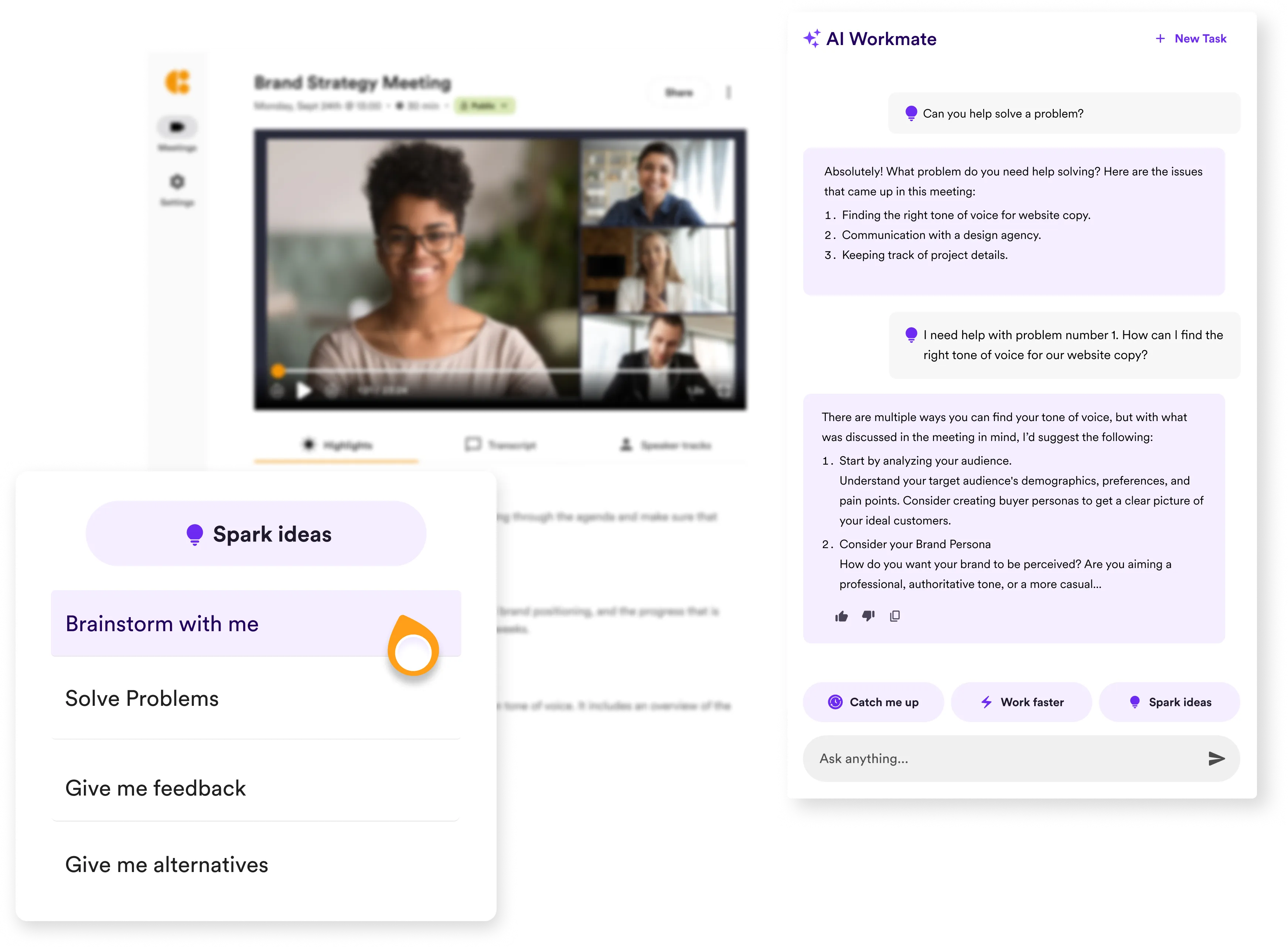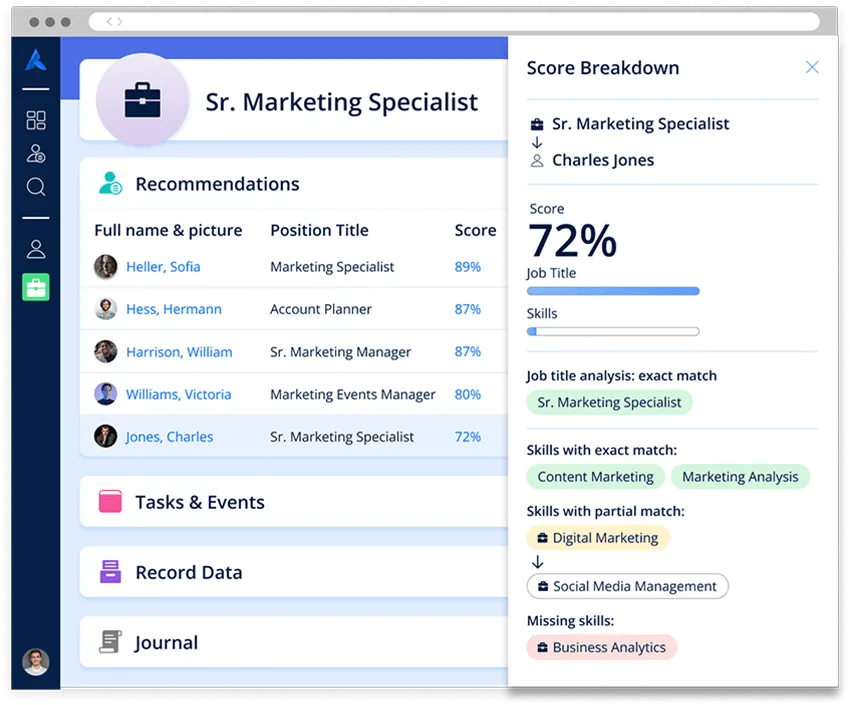Role Play Interviews : What You Need to Know

Ever wondered how to truly gauge a candidate’s problem-solving abilities or see their interpersonal skills in action?
Role play interviews offer that opportunity.
In this article, we'll explore the concept of role play interviews, why they are beneficial, and how to conduct them effectively.
What Is a Role Play in an Interview?
A role play in an interview is a simulation exercise designed to put candidates into job-related scenarios. It allows recruiters and employers to see how they would handle real-life challenges on the job.
In a role play interview, the hiring team presents the candidate with a situation relevant to the job. For instance, if you're applying for a customer service position, you might be asked to deal with an irate customer. If it's a sales role, you could be asked to pitch a product to a mock client. The interviewers take on different characters, such as a customer or team member, while the candidate acts as they would if they were actually working in that situation.
Role plays are particularly common in jobs where soft skills like communication, persuasion, and empathy are crucial.
Why Use Role Play Interviews?

Role play interviews offer significant advantages for employers seeking the best candidate for a position :
- To evaluate soft skills—those essential traits that are difficult to measure through traditional interviews. Skills like effective communication, empathy, adaptability, and problem-solving are better demonstrated in action rather than described.
- To predict job performance. A resume can show you where someone has worked and a traditional interview can tell you what they know, but role play shows how they would behave when faced with a real challenge. It helps hiring managers understand if the candidate’s approach aligns with the company’s values and expectations.
- To put candidates in situations where they need to make quick decisions. This allows interviewers to see not only how well a candidate thinks on their feet but also their ability to prioritize and focus in a high-stress scenario.
Examples of Role Play Per Role
The scenarios used in role play interviews can vary depending on the job role and the specific skills that employers want to assess. Below are examples of common role play scenarios tailored to different types of positions:
Customer Service Representative: In this role, a typical role play might involve handling a challenging customer interaction. The candidate may be asked to speak with an irate customer who is upset about a faulty product or a billing issue. The goal is to observe how well the candidate listens, shows empathy, and offers solutions.
Sales Executive: A sales role play often involves pitching a product or service to a potential client. The interviewers may act as hesitant or skeptical customers, giving the candidate an opportunity to demonstrate their persuasion techniques, ability to handle objections, and product knowledge.
Manager or Team Lead: For managerial positions, role play scenarios may focus on handling team conflicts or giving constructive feedback. For instance, the candidate could be asked to mediate a dispute between two team members or deliver performance feedback to an underperforming employee.
Technical Support Specialist: For a technical support role, the scenario might involve assisting a customer who is experiencing issues with a piece of software or hardware. The candidate needs to troubleshoot the problem, explain complex technical concepts in simple terms, and reassure the customer.
Healthcare Professional: In healthcare roles, a role play could involve interacting with a patient who is nervous about a procedure. The candidate might be required to explain the process, address the patient’s concerns, and ensure they feel comfortable.
Retail Supervisor: A common role play for retail positions might involve addressing an issue with an unhappy customer or resolving a conflict between two employees on the sales floor. This helps assess both customer service abilities and team management skills, providing insight into how the candidate would handle day-to-day challenges in a retail setting.
Interview Role Play Scripts

A concrete role play script helps structure the scenario and ensures that all candidates face consistent situations. Below is a sample script for a customer service representative role play to give you an idea of what a structured role play might look like:
Scenario: Handling an Upset Customer
Context: You are a customer service representative for an online retail company. A customer (played by the interviewer) is upset because they received the wrong product and they need a replacement urgently, as it is a gift for an upcoming event.
Setting: The role play takes place over a simulated phone call. The interviewer will act as the frustrated customer, and the candidate needs to resolve the issue to the best of their ability.
Script:
Customer (Interviewer): "Hello, I’m really frustrated right now. I ordered a red sweater, but I received a blue one instead. I need the correct item before this weekend for a birthday gift, and I feel like your company has really let me down."
Customer Service Rep (Candidate): "I’m truly sorry for the inconvenience, and I understand how frustrating this situation must be, especially with a special occasion coming up. Let me assure you that I’m here to help you fix this."
Customer: "How can you help? I don’t have time to waste—I need the red sweater right away!"
Customer Service Rep: "I completely understand the urgency. Let me first check our inventory to confirm that we have the red sweater in stock. If it’s available, I will expedite shipping at no additional cost to ensure you receive it before the weekend. Could I please have your order number so I can look up the details?"
Customer: "Fine, it’s #12345. But how do I know this won’t happen again?"
Customer Service Rep: "Thank you for providing that information. I’m currently checking the order details. I assure you that we take such issues very seriously. I’ll personally oversee this replacement process to make sure everything goes smoothly. We will also send you a confirmation email with the tracking information so you can monitor the shipment every step of the way."
Customer: "Okay, but this has been really inconvenient."
Customer Service Rep: "I completely understand, and I truly apologize for the inconvenience. As a gesture of goodwill, I’d like to offer you a discount code for your next purchase. I hope this helps make up for the trouble, and I’ll make sure that we correct this as quickly as possible so you have the gift in time."
Tips to Conduct a Role Play Interview Well
Conducting an interview role play effectively requires careful preparation, clear communication, and the ability to foster an environment where candidates can feel comfortable enough to perform their best. Role play scenarios can reveal a lot about how candidates respond to real-life challenges, but the way the exercise is conducted is key to getting meaningful insights. Here are some tips to ensure a successful interview role play.
1. Set Clear Expectations
Before starting the role play, explain the purpose and context clearly to the candidate. Let them know what you are looking for, the kind of situation they’ll be stepping into, and any background information they might need. This helps the candidate understand what’s expected of them and reduces unnecessary stress. Make sure they know that you are not necessarily looking for a perfect response but rather their natural approach to problem-solving and communication.
2. Create a Realistic Scenario
The scenario you present should be as realistic as possible, mirroring the types of challenges the candidate would likely face in the role. The more authentic the scenario, the better the candidate can demonstrate how they would react in a real work setting. Include enough detail for the candidate to grasp the situation clearly but avoid making it overly complex.
3. Keep It Structured but Flexible
While it’s important to have a structured script to ensure consistency, allow for flexibility within the role play. Each candidate will respond differently, and you should be prepared to adapt to their responses in real-time. Flexibility helps simulate the unpredictability of real-life interactions.
4. Observe Both Verbal and Non-Verbal Cues
During the role play, pay attention not only to what the candidate says but also how they say it. Body language, tone of voice, and facial expressions can provide valuable insights into their interpersonal skills and level of empathy.
5. Take Detailed Notes
Taking detailed notes during the role play is essential for a fair evaluation. Note specific actions or responses that stand out, both positive and negative. If multiple people are observing, ensure that everyone captures their impressions to help with a balanced assessment later. If possible, use a tool like Noota to record and transcribe the session, making it easier to review later without missing any important details.
6. Provide Constructive Feedback
After the role play, provide constructive feedback to the candidate. Start by highlighting what they did well, such as effective communication or strong problem-solving skills. Then, discuss areas where they could improve, focusing on specific examples from the role play. This helps the candidate understand their performance and shows that you value transparency.
Streamline Your Role Play Interview: Noota

Role play interviews can provide valuable insights, but they also require significant focus and coordination, especially when trying to capture every detail of a candidate’s performance. This is where Noota can make a big difference :
- Record and Transcribe Your Role Play Automatically : Taking notes during a role play interview can be challenging, particularly when you’re trying to observe both verbal and non-verbal cues. Noota’s automatic recording and transcription features solve this issue by capturing every word in real-time.
- Generate Structured Summaries : Once the role play is complete, it can be time-consuming to sift through pages of notes or listen to recordings in their entirety. Noota helps by generating structured summaries that highlight key takeaways from the conversation.
- Seamless Team Collaboration : hiring decisions are rarely made by just one person, and collaboration is key. Noota’s platform makes it easy to share interview insights with your hiring team. You can distribute structured summaries and transcripts efficiently, ensuring that everyone involved in the decision-making process has access to the same information.
Want to conduct efficient, fair and data-driven role play interviews ? Try Noota for free.
Leverage your Interview Data
AI interview notes, scorecard, follow-up, ATS integration, and more...
Related articles

Forget note-taking and
try Noota now
FAQ
In the first case, you can directly activate recording as soon as you join a videoconference.
In the second case, you can add a bot to your videoconference, which will record everything.
Noota also enables you to translate your files into over 30 languages.

.svg)
.svg)
.webp)

.png)


.svg)
